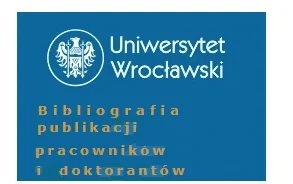
dr Kaja Kowalczewska
Pracowniczka badawcza
Inkubator Doskonałości Naukowej – Centrum Digital Justice
Marie Skłodowska-Curie (MSCA) Postdoctoral Fellow – Swansea University (UK)
Kontakt
Email: kaja.kowalczewska@uwr.edu.pl
Publikacje
Artykuły, monografie, rozdziały i publikacje redakcyjne
2025
- Kowalczewska Kaja, Ranczakowska Anna Maria
Digitalisation and Democratisation as a Leverage Point in Transformation of International Criminal Justice [w:] A. Galushko, M. Ochi (eds.) Collecting cyber evidence during ongoing hybrid warfare: OSINT and civilian-led documentation of core international crimes, Maklu 2025, s. 15-48.
https://hdl.handle.net/11250/3222851 - Kowalczewska Kaja
Addressing Fear Elimination in Soldiers: Ethical, Legal, and Strategic Implications for Modern Warfare, Journal of Military Ethics, 2025, s. 1–15.
https://doi.org/10.1080/15027570.2025.2467529 - Kowalczewska Kaja, Nasiłowski Michał
Polish insights into forensic technology : the role of 3d scanners in crime scene investigations and international criminal justice, Forensic Science, 2025, 1, s. 32-39
10.32782/forensic.science.2025.1.5
2024
- Kowalczewska Kaja
Heightened risk if revictimization as a challenge stemming from digitalization and democratization of international criminal justice efforts : case study of the Polish civil society organisations in the aftermath of Russian aggression on Ukraine [w:] Victim-Centred Criminal Justice : (XIth AIDP International Symposium for Young Penalists, Kyoto, Japan, 14-15 September 2023) / red. Megumi Ochi, Renata Barbosa, Luyuan Bai
Antwerpen : Maklu Publishers, 2024, s. 99-128, (RIDP libri ; 6)
ISBN 978-90-466-1264-4
https://tiny.pl/nw_0z931 - Kowalczewska Kaja
Legal aspects of unmanned warfare and military drone operations [w:] Shielding Europe with the Common Security and Defence Policy: The EU legal framework for the development of an innovative European defence industry in times of a changing global security environment : studies of the Central European Professors’ Network / red. Katarzyna Zombory, János Ede Szilágyi
Miskolc : Budapest : Central European Academic Publishing, 2024, s. 581-615
ISBN 978-615-6474-63-6
10.54237/profnet.2024.zkjeszcodef_13 - Kowalczewska Kaja, Pauli Barbara
Comments on the ICJ Judgment on 31 January 2024 on Application of the International Convention for the Suppression of the Financing of Terrorism and the International Convention on the Elimination of All Forms of Racial Discrimination (Ukraine v. Russian Federation)
Polish Review of International and European Law, 13(2), 2025, s. 251–275. https://doi.org/10.21697/2024.13.2.08
2023
- Mamak Kamil, Kowalczewska Kaja
Military robots should not look like a humans, Ethics and Information Technology, 2023, 25, 3, s. 1-10, IF: 3.6
10.1007/s10676-023-09718-6 - Kowalczewska Kaja
War-Torn Justice: Empirical Analysis of the Impact of Armed Conflict on Fair Trial Guarantees in Ukraine, Revista Brasileira de Direito Processual Penal, 2023, 9, 3, s. 1061-1107, IF: 0.3
10.22197/rbdpp.v9i3.896
2022
- Kowalczewska Kaja, Łubiński Piotr
Legality of the Turkish military operations in Syria, Problemy Współczesnego Prawa Międzynarodowego Europejskiego i Porównawczego, 2022, 20, s. 55-83
10.26106/9R8G-JT22 - Kowalczewska Kaja, Kijewska Barbara
War algorithms in modern deliberative democracies : parliamentary technology assessment as a public conscience discovery tool?, Teoria Jurídica Contemporânea, 2022, 7, s. 1-32
10.21875/tjc.v7i0.50767 - Kowalczewska Kaja
Zgoda państwa jako przesłanka działalności Polskiego Czerwonego Krzyża
W: Nauka prawa a praktyka prawnicza : księga jubileuszowa z okazji czterdziestolecia Okręgowej Izby Radców Prawnych w Krakowie / red. Michał Araszkiewicz, Michał Krok, Marcin Sala-Szczypiński, Kraków : Księgarnia Akademicka, 2022, s. 249-269
ISBN 978-83-8138-772-9
10.12797/9788381387736.13
Działalność naukowa
Nota biograficzna
Dr Kaja Kowalczewska od lipca 2022 roku adiunktka w Inkubatorze Doskonałości Naukowej – Digital Justice na Wydziale Prawa, Administracji i Ekonomii Uniwersytetu Wrocławskiego, zajmującego się wpływem nowych technologii na proces karny i finansowanego ze środków Inicjatywy Doskonałości – Uczelni Badawczej.
W latach 2019-2022 adiunktka w Instytucie Prawa i Ekonomii Uniwersytetu Pedagogicznego im. KEN w Krakowie. W 2011 r. uzyskała tytuł magistra prawa na Uniwersytecie Jagiellońskim w Krakowie oraz tytuł Master 2 en droit privé économique (professsionnel) na Wydziale Prawa, Ekonomii i Zarządzania Uniwersytetu w Orléans, w 2012 r. tytuł Master 2 en droit international privé et du commerce international (recherche) na Wydziale Prawa Uniwersytetu Panthéon-Assas w Paryżu, a w 2013 r. tytuł Master of Arts in European Interdisciplinary Studies w Kolegium Europejskim w Natolinie. W styczniu 2019 r. uzyskała tytuł doktora nauk prawnych na Wydziale Prawa i Administracji Uniwersytetu Jagiellońskiego.
Ukończyła aplikację radcowską w 2016 roku, a w latach 2017-2022 pracowała na stanowisku prawnika a potem radcy prawnego w Fundacji Frank Bold w Krakowie, zajmując się prawem ochrony środowiska.
Dr Kowalczewska jest stypendystką Erasmus Studia (2009, Université de Montpellier), Erasmus Praktyki (2011, United Nations Office on Drugs and Crime), Komisji Europejskiej (2012, College of Europe), Hague Academy of International Law (2013), Erasmus Intensive Programme (2014, University of Stockholm), Narodowego Centrum Nauki (ETIUDA 2016, University of Melbourne), NAWA (2020, University of Tilburg), Ministra Nauki i Szkolnictwa (2020, Doskonała Nauka). Odbywała staże naukowe i brała udział w konferencjach międzynarodowych m.in. we Francji, Holandii, Niemczech, Szwecji, Izraelu, Grecji, Rosji, Czechach, Włoszech, Armenii i Portugalii.
Za swoje osiągnięcia naukowe otrzymała 1. nagrodę w XV edycji konkursu im. prof. Remigiusza Bierzanka za pracę magisterską pt. „Odpowiedzialność prywatnych spółek wojskowych w prawie międzynarodowym” (2012, PCK), 1. nagrodę w Student Paper Contest za artykuł pt. „APT – the new cyberforce?” (2014, PISM) oraz 1. nagrodę w XXII edycji konkursu im. prof. Remigiusza Bierzanka, za rozprawę doktorską pt. „Śmiercionośne systemy z postępującą autonomicznością – analiza prawnomiędzynarodowa” (2020, PCK).
Aktualnie jest wykonawcą w projekcie Jean Monet Module “Protection of Fundamental Rights in the European Union” (ref: 620847-EPP-1-2020-1-PL-EPPJMO-MODULE, Komisja Europejska). Zrealizowała projekt PRELUDIUM 7 „Dylemat autonomicznych systemów bojowych w świetle zasad międzynarodowego prawa humanitarnego” (UMO-2014/13/N/HS5/01208, Narodowe Centrum Nauki).
Była pomysłodawczynią i koordynatorką projektu „Społeczeństwo obywatelskie wobec rozwoju polskich bojowych bezzałogowców” finansowanego z Funduszy EOG (2013-2016, Aktywni Obywatele), ekspertką w programie „Counter Unmanned Autonomous Systems: Priorities. Policy. Future Capabilities” (2015-2016, MCDC NATO-ACT). Wykładała w wojskowym Centrum Edukacji Obywatelskiej w Warszawie (2021) oraz na Polskiej Szkole Międzynarodowego Prawa Humanitarnego w Radziejowicach (2022).
Od 2020 roku, dr Kowalczewska jest członkiem Komisji ds. Upowszechniania Międzynarodowego Prawa Humanitarnego przy Zarządzie Głównym Polskiego Czerwonego Krzyża a od 2021 roku ekspertem Fundacji AI LAW Tech Foundation i członkiem Grupy Roboczej ds. Sztucznej Inteligencji przy Kancelarii Prezesa Rady Ministrów (GRAI).
Zainteresowania badawcze dr Kowalczewskiej koncentrują się głównie na prawie międzynarodowym mającym zastosowanie do konfliktów zbrojnych (międzynarodowe prawo humanitarne konfliktów zbrojnych, międzynarodowe prawo ochrony praw człowieka i międzynarodowe prawo karne) a także na wpływie nowych (w szczególności przełomowych) technologii na współczesny system bezpieczeństwa.
W wolnym czasie dr Kowalczewska chodzi po górach i słucha muzyki.
Biographical note
Kaja Kowalczewska Ph.D., from July 2022 is Assistant Professor in the Incubator of Scientific Excellence – Digital Justice at the Faculty of Law, Administration and Economics of the University of Wrocław, focusing on the impact of new technologies on the criminal justice process and funded by the Excellence Initiative – Research University.
From 2019 to 2022, she was an Assistant Professor at the Institute of Law and Economics of the KEN Pedagogical University in Kraków. In 2011, she was awarded the title of Master of Law at the Jagiellonian University in Kraków and the title of Master 2 en droit privé économique (professsionnel) from the Faculty of Law, Economics and Management at the University of Orléans, in 2012 the title of Master 2 en droit international privé et du commerce international (recherche) from the Faculty of Law at the Panthéon-Assas University in Paris, and in 2013 the title of Master of Arts in European Interdisciplinary Studies from the College of Europe in Natolin. In January 2019, she received her PhD in Legal Sciences from the Faculty of Law and Administration of the Jagiellonian University.
She graduated as a trainee attorney-at-law in 2016 and from 2017 to 2022 worked as a lawyer and then as an attorney-at-law at the Frank Bold Foundation in Krakow, dealing with environmental law.
Dr Kowalczewska has received fellowships from Erasmus Studies (2009, Université de Montpellier), Erasmus Internships (2011, United Nations Office on Drugs and Crime), European Commission (2012, College of Europe), Hague Academy of International Law (2013), Erasmus Intensive Programme (2014, University of Stockholm), National Science Centre (ETIUDA 2016, University of Melbourne), NAWA (2020, University of Tilburg), Minister of Science and Education (2020, Excellent Science). She has conducted research and participated in international conferences in France, the Netherlands, Germany, Sweden, Israel, Greece, Russia, the Czech Republic, Italy, Armenia and Portugal, among others.
For her scientific achievements, she was awarded 1st prize in the 15th edition of the Prof. Remigiusz Bierzanek competition for her Master’s thesis entitled. „Responsibility of private military companies in international law” (2012, Polish Red Cross), 1st prize in the Student Paper Contest for her article „APT – the new cyberforce?” (2014, PIIA) and 1st prize in the XXII edition of the Prof. Remigiusz Bierzanek competition, for his doctoral dissertation entitled. ” Lethal systems with progressive autonomy – an international legal analysis” (2020, PCK).
She is currently a contractor in the Jean Monet Module project „Protection of Fundamental Rights in the European Union” (ref: 620847-EPP-1-2020-1-PL-EPPJMO-MODULE, European Commission). She conducted the PRELUDIUM 7 project „The dilemma of autonomous combat systems in the light of the principles of international humanitarian law” (UMO-2014/13/N/HS5/01208, National Science Centre).
She was the originator and coordinator of the project „Civil society towards the development of Polish combat drones” funded by the EEA Funds (2013-2016, Active Citizens), an expert in the programme „Counter Unmanned Autonomous Systems: Priorities. Policy. Future Capabilities” (2015-2016 MCDC NATO-ACT). She lectured at the Military Civic Education Centre in Warsaw (2021) and at the Polish School of International Humanitarian Law in Radziejowice (2022).
Since 2020, Dr Kowalczewska has been a member of the Commission for the Dissemination of International Humanitarian Law at the General Board of the Polish Red Cross and since 2021 an expert at the AI LAW Tech Foundation and a member of the Working Group on Artificial Intelligence at the Chancellery of the Prime Minister (GRAI).
Dr Kowalczewska’s research interests focus mainly on international law applicable to armed conflicts (international humanitarian law of armed conflicts, international human rights law and international criminal law) as well as on the impact of new (especially disruptive) technologies on the contemporary security system.
In her free time, Dr Kowalczewska hikes in the mountains and listens to music.


